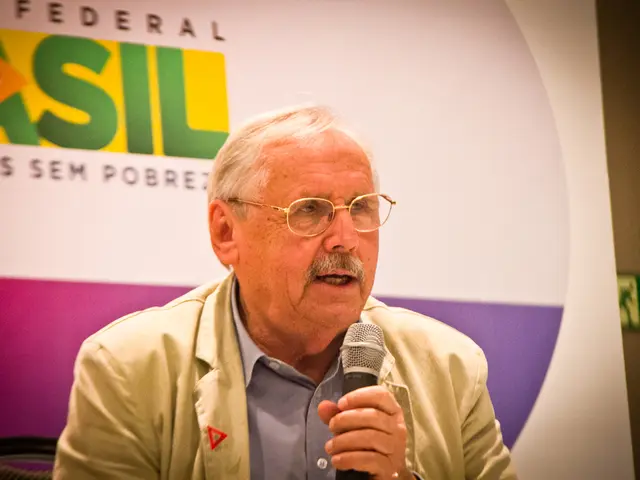Unbounded Cinematic Journey: Exploring the Motion Pictures of Paweł Pawlikowski
Pawel Pawlikowski, a British-Polish filmmaker, has carved out a unique niche in the world of cinema with his poignant explorations of the theme of an absent or lost home. Spanning nearly four decades, Pawlikowski's cinematic career has crossed various modes of cinema and production cultures, making him a prominent figure in the evolving landscape of filmmaking.
Pawlikowski began his career at the BBC, where he worked for eighteen years, focusing on documentary films and later transitioning to fiction films. His work, which weaves a rich and intricate mosaic of cinematic influences, reflects his engagement with various styles and visual languages.
The traditional concept of the film auteur is migrating from national art cinemas to transnational networks of film production, distribution, and exhibition. Pawlikowski's work mirrors this shift, as he has resumed filmmaking in 2011, shifting to European and national co-production frameworks for funding. This approach has proven successful, with Pawlikowski directing two films in Poland: Ida, which received the Academy Award for Best International Feature Film (known as Best Foreign Language Film prior to 2020), and Cold War (Zimna wojna), which earned him the Best Director Award at Cannes.
The monograph "ReFocus: The Films of Pawel Pawlikowski" is the first book-length study of the director's films and career. Written by Annette Davison and Frank Krutnik, the book aims to provide a comprehensive introduction to his entire body of work and to contribute to the theory of authorship. The monograph is grounded in the theoretical framework of cinematic authorship, contextualizing it within production studies and transnational cinema studies.
Elzbieta Ostrowska, PhD, an Associate Professor at the Department of Film and Audiovisual Media at the University of Łódź, Poland, is the author of the most recent book on another acclaimed Polish director, Agnieszka Holland. Her research focuses on European and Eastern European cinema with particular emphasis on exile, migration, and transnational film studies, making her a fitting scholar to contribute to the study of Pawlikowski's work.
Art cinema has found more confidence at the Academy Awards, and the opposition between art and commerce no longer serves to establish cultural hierarchies but to regulate film markets. Pawlikowski's work, which not only fashions a distinctive cinematic vision but also invites audiences to experience a voyage across the spectrum of European cinema, is a testament to this shift.
In 2015, Pawlikowski won an Oscar for his film Ida, further cementing his place in the annals of cinema history. His thematic exploration of migration, displacement, and border-crossing resonates with his own transnational journeys, making his work all the more compelling and relevant.
Joanna Rydzewska, Senior Lecturer in Film and TV Studies at Swansea University, UK, also focuses on European and Eastern European cinema, with particular emphasis on exile, migration, and transnational film studies. Her insights into Pawlikowski's work undoubtedly add depth and nuance to our understanding of his cinematic journey.
In conclusion, the evolving landscape of cinema, with its shifting focus from national to transnational filmmaking, provides a fertile ground for directors like Pawel Pawlikowski to explore themes of home, identity, and displacement. As we continue to navigate this new terrain, the works of directors like Pawlikowski serve as beacons of artistic excellence and cultural insight.








